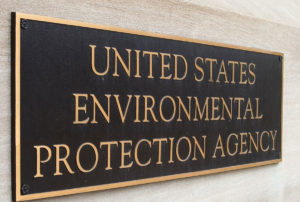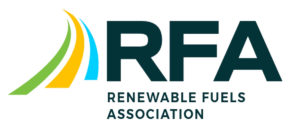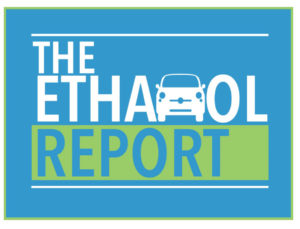 The Environmental Protection Agency (EPA) released a final rule today that establishes required renewable volumes under the Renewable Fuel Standard (RFS) program for 2020 that is basically the same as the proposed rule that industry stakeholders say still falls short.
The Environmental Protection Agency (EPA) released a final rule today that establishes required renewable volumes under the Renewable Fuel Standard (RFS) program for 2020 that is basically the same as the proposed rule that industry stakeholders say still falls short.
Renewable Fuels Association President and CEO Geoff Cooper says the rule fails to deliver on President Trump’s commitment to restore integrity to the RFS. “While the final rule is an improvement over the original proposal, it still does not guarantee that the law’s 15-billion-gallon conventional biofuel blending requirement will be fully enforced by EPA in 2020,” said Cooper.
 According to the rule released today, EPA will project SRE volumes based on historical Department of Energy (DOE) recommendations, rather than the actual volume of SREs issued by EPA. Ironically, however, EPA has generally chosen to ignore DOE’s recommendations regarding SRE petitions in recent years. For the 2016-2018 compliance years, the volume of required renewable fuel blending waived by EPA was almost double the amount recommended by DOE.
According to the rule released today, EPA will project SRE volumes based on historical Department of Energy (DOE) recommendations, rather than the actual volume of SREs issued by EPA. Ironically, however, EPA has generally chosen to ignore DOE’s recommendations regarding SRE petitions in recent years. For the 2016-2018 compliance years, the volume of required renewable fuel blending waived by EPA was almost double the amount recommended by DOE.
“After doing the exact opposite in recent years, EPA is now suggesting it will follow DOE’s recommendations on 2020 SRE petitions,” Cooper said.
Listen to Cooper’s comments on the final rule:
RFA CEO Geoff Cooper reacts to EPA final rule (1:21)
American Coalition for Ethanol (ACE) CEO Brian Jennings says disappointed is an understatement. “Over the course of the past few months, we’ve gone from promises of a ‘giant package’ to the reality of a lump of coal…We are forced yet again to continue defending the RFS and fighting EPA’s mismanagement of the program in the third branch of government, but this is another painful reminder our industry needs to go on offense with a new plan to increase demand on ethanol’s low carbon and high octane advantages.”
The National Biodiesel Board (NBB) expressed its disappointment with the final rule, which maintains the 2020 overall advanced volume and 2021 biomass-based diesel volume at the same levels as the current year, blocking growth for the biodiesel industry. “EPA’s final rule for the 2020 RFS volumes is simply out of step with Congressional intent and President Trump’s promises,” said Kurt Kovarik, NBB’s VP of Federal Affairs. “This week, Congress and the president are extending the biodiesel tax incentive through 2022 and sending an unmistakable signal that they support continued growth of biodiesel and renewable diesel. At the same time, EPA Administrator Wheeler is doing everything he can to block that growth.”
National Corn Growers Association (NCGA) President Kevin Ross said, “The Administration has chosen to move forward with a final rule that corn farmers believe falls short of adequately addressing the demand destruction caused by EPA’s abuse of RFS refinery waivers. While using the DOE recommendations to account for waivers is an improvement over the status quo, it is now on corn farmers to hold the Administration to their commitment of a minimum of 15 billion gallon volume, as the law requires. We will use future rulemakings and other opportunities to hold the EPA accountable.”
 Southwest Iowa Renewable Energy (SIRE) has repurchased the stake Bunge North America had in its Council Bluffs, Iowa ethanol plant. The purchase of Bunge’s Series B membership units effective December 31, 2019 ends the company’s 13-year ownership interest in SIRE.
Southwest Iowa Renewable Energy (SIRE) has repurchased the stake Bunge North America had in its Council Bluffs, Iowa ethanol plant. The purchase of Bunge’s Series B membership units effective December 31, 2019 ends the company’s 13-year ownership interest in SIRE. 










